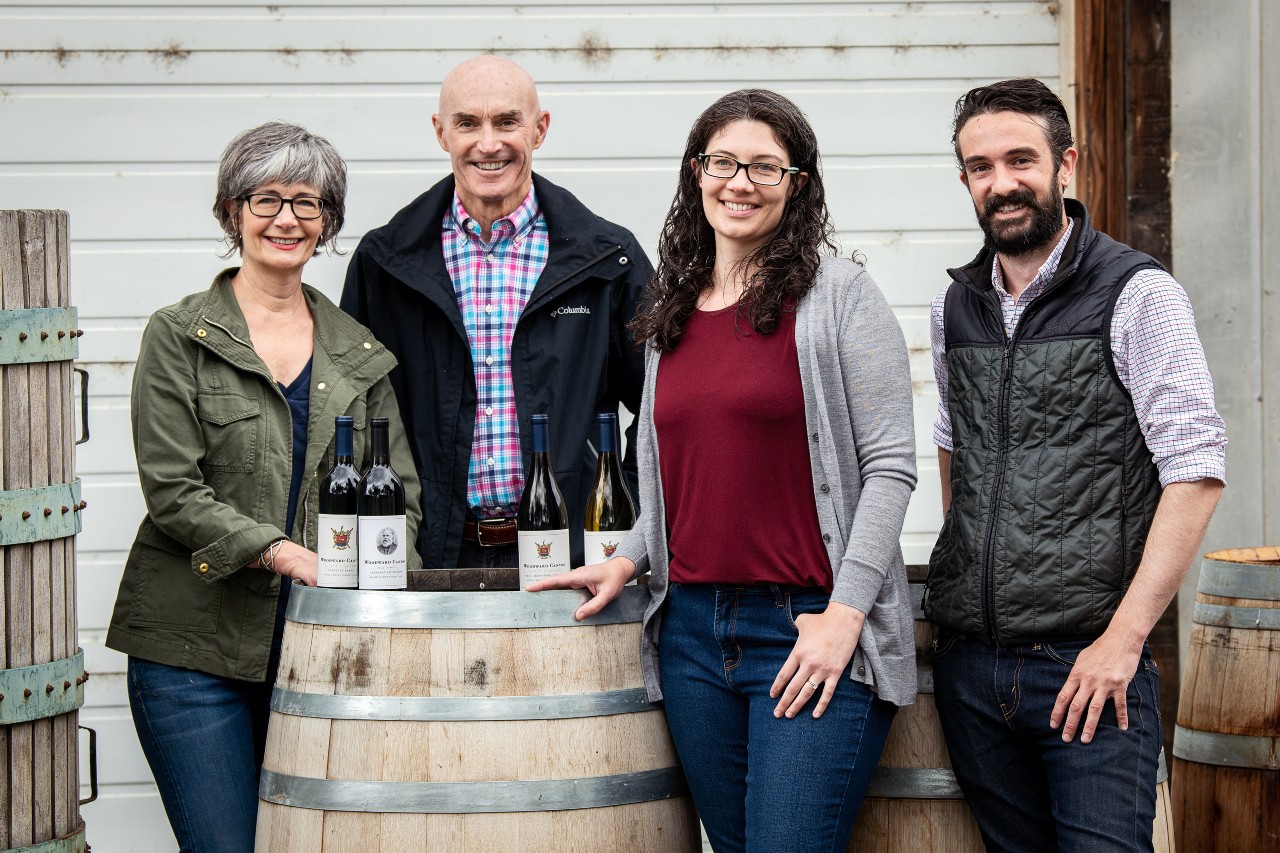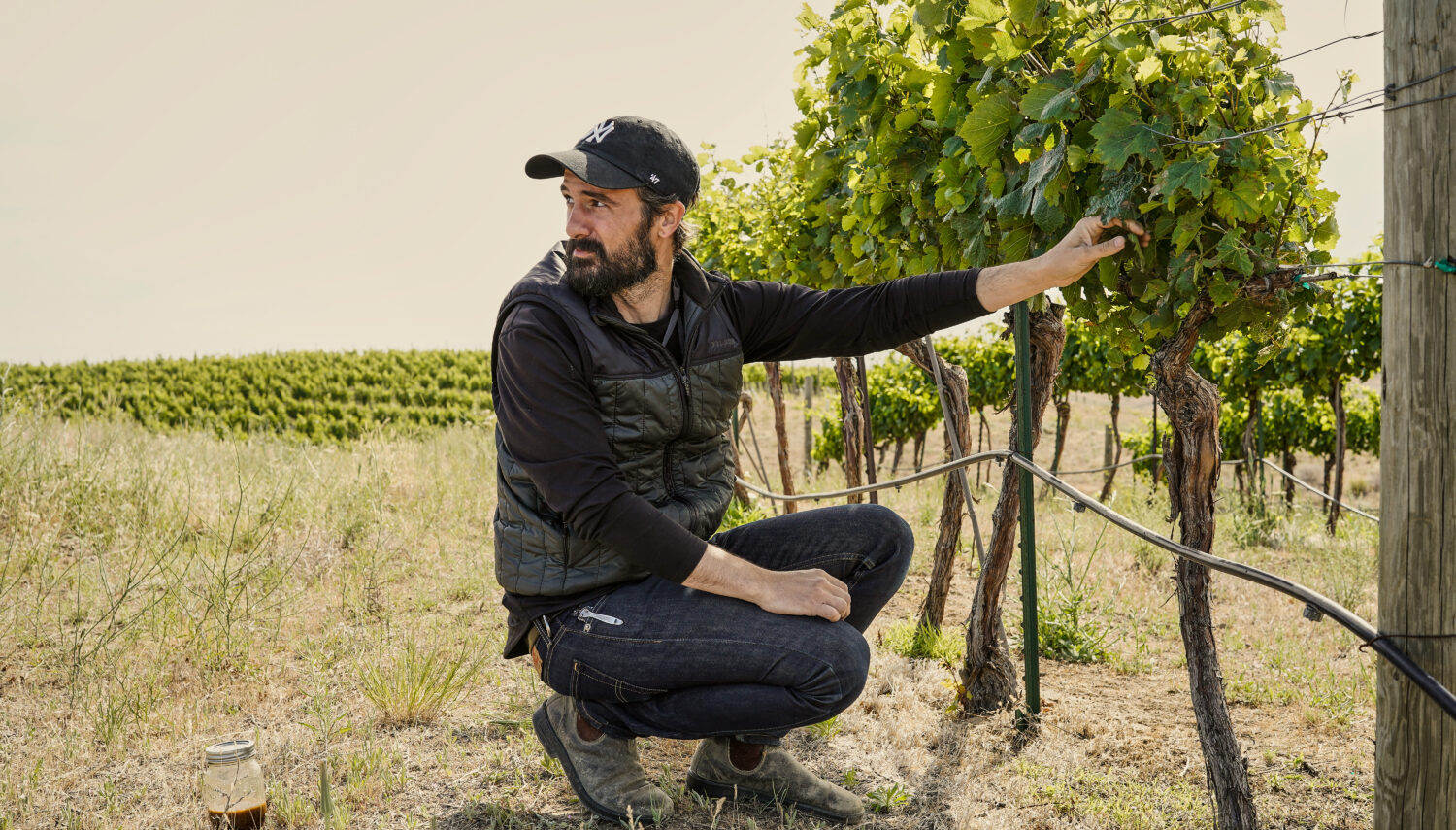An interview with Sager Small of Woodward Canyon by Brook Browning.
Sager Small is half of the second generation, along with his sister Jordan slowly taking over Woodward Canyon from their parents who founded the winery in 1981. Woodward Canyon is the second oldest winery in the Walla Walla Valley. Sager’s focus is primarily in the Vineyard, working on regenerative farming practices and raising quality fruit for their exceptional wines.

Brook Browning: How did you get into wine?
Sager Small: My family started Woodward Canyon before I was born, so I was raised in it. I had lived in Seattle and worked in kitchens until I was in my late 20s and moved back to work at the family business.
BB: Is there someone in the EV world that you admire, including fellow EV alums?
SS: I admire the people taking risks with their winemaking and vineyard management. It’s not ridiculously difficult to make wine or grow grapes, but to make true, awesome wine or grow in an organic or biodynamic way is something worthy of respect. Robert Gomez and Keith Johnson are great guys that make great wine that kind of challenges a lot of the norms around here and I love it, Ita too. Also, I will forever admire Sabrina Lueck for how much of an encyclopedia of knowledge she is and how many people she has helped teach, everybody that’s helping to educate people really.
BB: What’s special to you about working in the wine industry?
SS: For me, it’s being able to grow something, harvest, ferment, bottle, talk about, then sell. There are really not many industries like that.
BB: What is your favorite part of your job?
SS: I like being surrounded by plants all day, also when working in the vineyard I listen to podcasts and books on tape, last year there were about 19 books. Aside from that, just being able to see the grapes that go into the wines and taste them showing through is very rewarding.
BB: What are some of the challenges you’ve faced in the industry?
SS: Finding workers is always a struggle in the vineyard… I’m worried about the wealth gap between millennials and boomers, and the wine consumption disparities therein, it’s going to be a whole new world of consumers with different beliefs about consumption.
BB: What do you think differentiates and excites you about Washington wine?
SS: For me the most interesting thing about WA is the enormous breadth of diverse microclimates within the state, it lets us make so many different styles of wine depending on when [and where] you plant. I think we are just recently starting to see this.
BB: How do you foresee climate change or social issues affecting the local industry in the next few years?
SS: Scary. More water stress, more weeds, more smoke, more vineyard worker safety issues, it’s bad all around. Clone selection, irrigation, canopy management and weed management are all in flux and will have to adapt.
BB: What are some up-and-coming trends in wine that you’re following?
SS: I like most of the biodynamic, regenerative, natural wine things going on. Our agricultural system in this country is antithetical to sustainability, the wine industry included. I hope that “regenerative ag” becomes the equivalent to the 2000s “sustainable,” widespread, and almost the standard. I also see wineries making a concerted effort to be inclusive and respectful of the ancestral occupants of the lands they farm and occupy, I think this has been long overdue in the “waspy” male dominated wine industry.
BB: What advice can you share with future EV graduates?
SS: Keep learning, take risks, get your hands dirty and leave the land and the industry better than you found it.


Join the Conversation